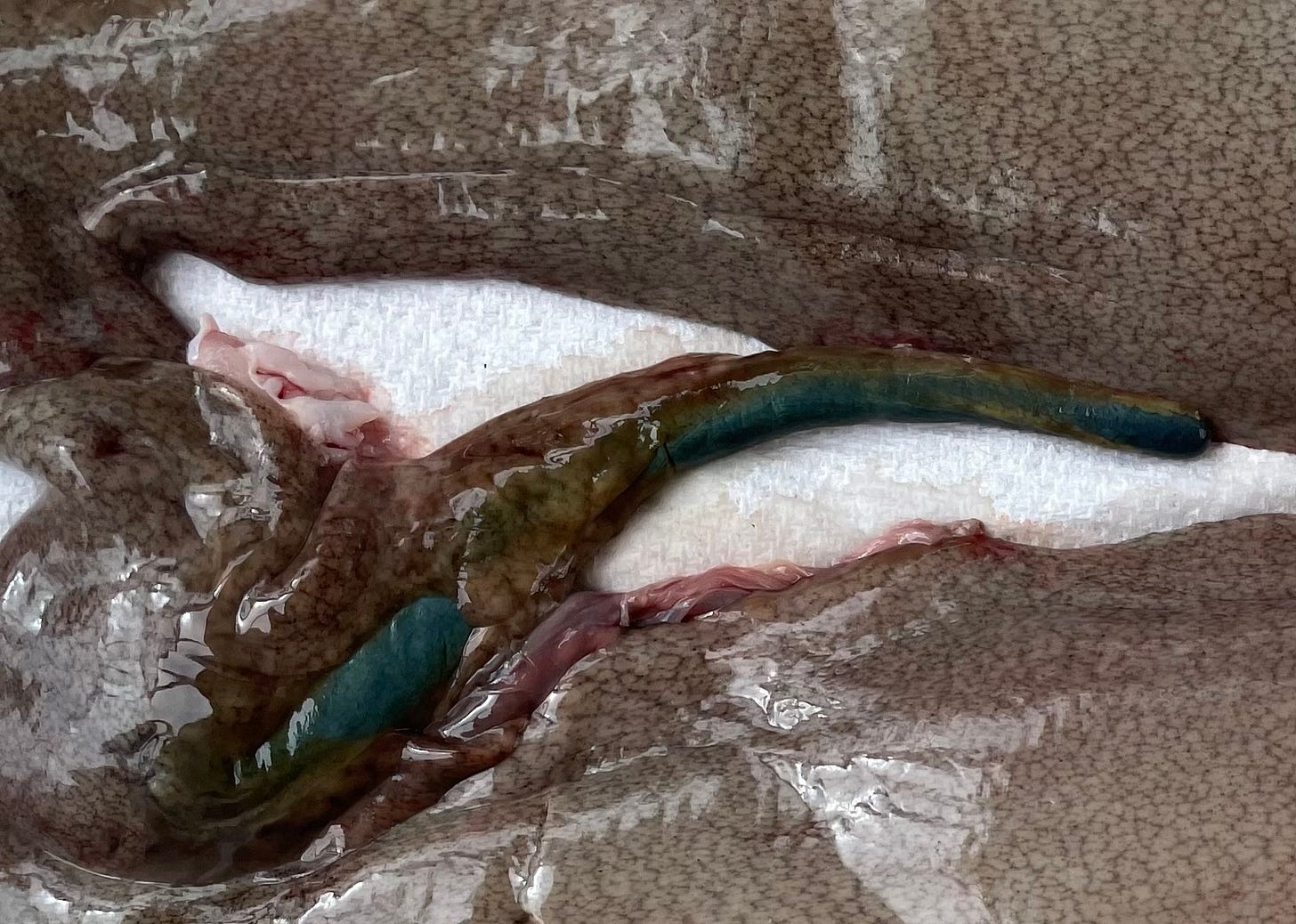People often ask me: what is the weirdest body part? And my answer is: none of them are weird. Every single body part and bodily fluid makes perfect sense, and each is a practical solution to a very everyday problem.
Take bile. Made by the liver and stored in the gallbladder, this greenish-yellow liquid gets squirted into our small intestines each time we eat a meal. Bile is actually an astute solution to a problem with the enzymes in our intestines breaking down food so that we can absorb the nutrients. The issue is that these enzymes dissolve only in water.
This causes no problems when those enzymes are breaking down protein and carbohydrates, since these two nutrients also dissolve in water (they are “hydrophilic”, which means “water-loving”). But the situation gets complicated when it comes to digesting fats and oils, which don’t mix with water (they are “hydrophobic,” which means “water-fearing”). If you pour oil and water into a jar and shake it up to mix them, they quickly separate again, with the oil floating on top of the water. Oil and water fearfully run away from each other like two same-pole magnets repelling.
So, the problem is this: how can hydrophilic enzymes dissolved in water get close enough to - and act on - the fats and oils we eat? In a jar of oil and water, imagine enzymes floating throughout the water part. There is no way for those enzymes to act on any of the oil except for the razer-thin layer that lies directly up against the water-oil interface. The distance simply cannot be bridged. And if the same separation happens inside our intestines, we cannot break fat down and absorb it. As a result we’d be severely malnourished while having oily stools that float on the toilet water and stubbornly resist being flushed. This is called “malabsorption,” since the fat is not being absorbed, and it occurs in certain conditions like celiac disease and Crohn’s disease when they flare up.
The solution to this problem is bile. And it works because bile molecules are two-faced: one face is hydrophilic and dissolves in water, and the other face is hydrophobic and dissolves in fat. The hydrophilic side grabs water (along with the water-soluble enzymes dissolved in it), and the hydrophobic side grabs the fat and oil we scarfed down. Bile holds them right up against one another, and the enzymes can work their magic. So bile is like a mediator, a diplomat, and a brilliant deal-maker.

Bile’s two-faced structure resembles soaps and detergents, which is why water with soap in it is much better at cleaning oily pots and pans than plain water. The hydrophobic side of soap molecules grabs onto the oily residue, while its hydrophilic side is dissolved in water. In other words, soap gives water the ability to wash away fat and oil. According to a Sicilian veterinarian I know named Alfredo, Italians even used animal bile as a soap in the distant past, though he has never seen it himself. A quick Amazon search revealed various kinds of “gall soap” for sale, though I cannot verify they actually contain bile (and from which animal).
Whether inside our guts, or on the oily pots and pans of an ancient Italian, bile is an emulsifier, and it’s just like the ones added to food products to improve texture and keep oil and water from separating. Examples of emulsifiers include lecithin from egg yolks and soy, and various gums that appear on ingredient lists.
Bile performs the same service as these emulsifiers - it just does its work after the food is swallowed, instead of before.


I am a big fan of bile. It is my second favorite solution after urine. Bile makes up two of the four bodily humors (blood, green bile, black bile, phlegm) which, according to Dr. Hippocrates, balance to determine our moods and behavior. I find that recently I am melancholic (full of black bile). I am not sure if this is due to old age or the political situation.
Hmm, my wife seems to have no ill effects from having her gallbladder removed, but perhaps she is? Occasional bouts of ulcerative colitis, proctitus.